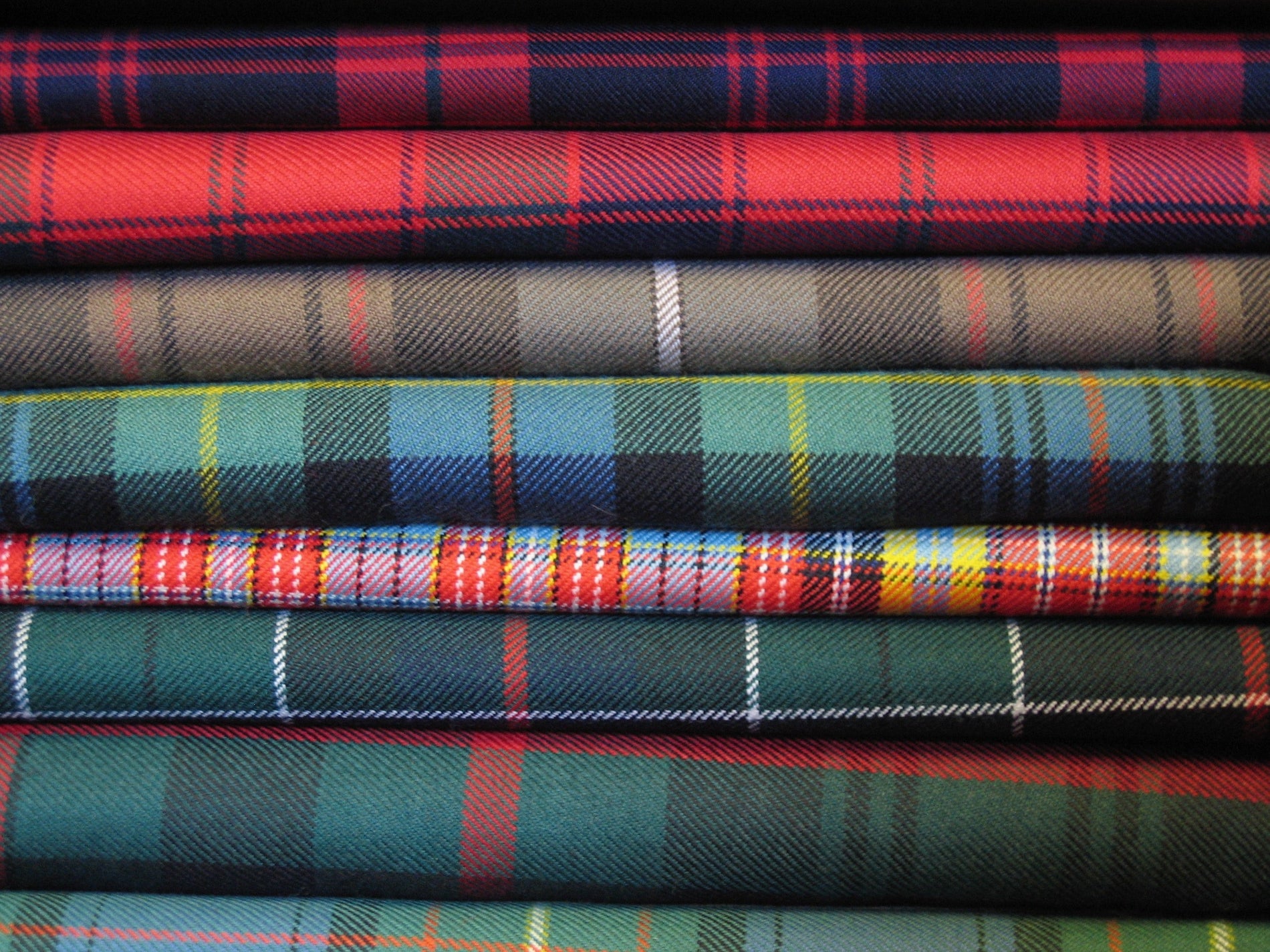THE HISTORY BEHIND 5 FAMOUS TARTANS

We all know that tartans can look fantastic when displayed on kilts, trews, and even waistcoats, but did you know about the fascinating history behind many Tartans such as the clan they come from and their use throughout history?
Join us as we explore the history behind five of the most famous and popularly used tartans.
1. Royal Stewart
Arguably Scotland's most famous tartan, Royal Stewart comes from the royal house of Stewart. The Royal Stewart house was founded by King Robert the Second who came from a long line of Scottish kings and queens. The Royal Stewart Tartan is also the personal tartan of Queen Elizabeth the second (our current Queen) which may explain the tartan's great popularity throughout the years.
In theory, this tartan cannot be worn without permission from the Queen, however, due to how popular the tartan became it is now a universal tartan meaning that anyone can choose to wear it. The Royal Stewart tartan has even managed to appear on biscuit tins for shortbread and, during the 1960s, was also seen in some motor racing circles, used mainly by Scottish Formula One racer Jackie Stewart.

- The Royal Stewart tartan is seen on various Scottish products including Edinburgh Shortbread.
2. Black Watch
The Black Watch tartan comes from the infamous infantry battalion of the regiment of Scotland. Although it was originally known as "The Government tartan and "Grant Hunt Tartan", the name Black Watch name may have come from the dark tartan uniforms that the battalion was made to wear. Although, other theories have also been suggested such as the name referring to the "black hearts" of the pro-government militia who had sided with the true enemies of Scotland.
As the Black Watch battalion started wearing the tartan back in the 1700s it means that the Black Watch tartan has now been worn by the Scottish soldiers for nearly 300 years! Similar to the Royal Stewart tartan, Black Watch was originally not to be worn by anyone aside from soldiers but this has changed in more modern times.

- The Black Watch Tartan has been worn by Scottish soldiers for nearly 300 years!
3. Ramsay Tartan
Next on our list is the Ramsay tartan. Although the version of the Ramsay tartan we have is in blue and black colors with white lines, originally this tartan appeared with red, black, and white. The Ramsay tartan comes from the Ramsay clan which was situated in the lowlands area of Scotland just to the south of Edinburgh.
The clan played a pivotal role in several Scottish wars including, the Wars of Scottish Independence, the Anglo Scottish war, and even various civil wars. The Ramsay's were proud to call two castles their home - Brechin Castle in Angus and Dalhousie Castle in Midlothian. Famous Ramsay's include easily irritated chef Gordon Ramsay, Scottish poet Allan Ramsay, and John William Ramsey a Scottish politician.

- Brechin Castle was once the proud home of the Ramsay's
4. Hamilton Grey
The Hamilton Grey Tartan comes from the Hamilton clan who although were originally loyal to the English, eventually became loyal supporters of the famous Robert the Bruce. Following the Battle of Bannockburn the Hamilton's were awarded the town of Cadzow which they soon renamed "Hamilton" - a name that still remains today!
In this town, the Hamilton's resided in Hamilton palace which at the time was the largest non-royal residence in the whole of Europe. The Hamilton Clan also has some Swedish descendants as Hugh Hamilton moved to Sweden and became a soldier in the Swedish army. He married a Swedish girl and had two half Swedish sons named Hugo and Malcolm.

- The town of Hamilton comes from the Hamilton who was awarded the land by Robert the Bruce after the Battle of Bannockburn.
5. Mackenzie Modern
Finally on our list, we have the Mackenzie Modern tartan which comes from the Mackenzie clan. The Mackenzie's were originally situated in the highlands of Scotland in the Kintail mountains.
Although they also supported Robert the Bruce, much like the Hamilton clan, the Mackenzie's were notorious for fighting with other clans and had well-known feuds with the Munro and MacDonald clans. Although they supported the Jacobite rising, many of the Mackenzie's were divided and there was plenty of infighting in the clan. Nevertheless, the clan survived and are still going today - the chief of clan Mackenzie to this day lives at Castle Leod.

- The clan Mackenzie survives to this day and even takes part in the Highland Games!

 Check out our Yopto Reviews
Check out our Yopto Reviews